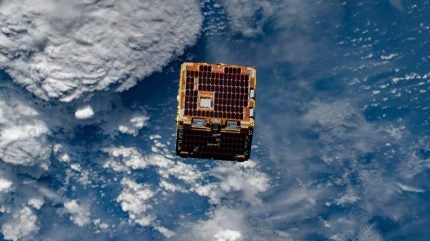
Ireland’s first ever satellite, Eirsat-1, has completed the European Space Agency’s critical design review (CDR), moving a step closer to launch.
Designed by a team at University College Dublin (UCD), EIRSAT-1 is a miniature satellite, similar in size to a shoebox.
Completion of the CDR marks the end of the first phase of ESA’s Fly your Satellite! (FYS) Programme. EIRSAT-1 was selected to be part of the second cycle of the programme in May last year.
The team will now move to the next phase of assembling and testing an EIRSAT-1 prototype suitable for launch.
Based on the success of additional reviews and mission milestones, EIRSAT-1 is scheduled to be delivered to ESA by 2020 with three scientific experiments on board.
Following its launch, the miniature satellite will transmit data to Earth via a ground radio station at EIRSAT-1 mission control in the UCD School of Physics for a period of six to 12 months.
UCD School of Physics and EIRSAT-1 project leader Lorraine Hanlon said: “Cubesats such as EIRSAT-1 are disrupting the traditional space sector globally, providing a fast and cost effective route to gaining spaceflight heritage.
“As an emerging space nation, Ireland’s future space endeavours will benefit from the skills developed by the talented team of UCD students who are building EIRSAT-1.”
EIRSAT-1’s main experiment will be a new gamma-ray detector, called GMOD, which is designed to detect gamma-ray bursts.
Its second experiment, known as EMOD, is an in-flight demonstration of thermal control coatings developed by the Ireland’s ENBIO. The third experiment, Wave-Based Control (WBC) will be used to test a UCD-developed algorithm to control the movement of EIRSAT-1.


